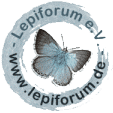

 +1Kontinente:?
+1Kontinente:?2. Weitere Informationen
2.1. Faunistik
Sinev (2019: 39) gibt die Art mit Fragezeichen für die von ihm definierte Region „10“ (Средне-Волжский регион: Нижегородская, Пензенская, Ульяновская и Самарская области, Рес публики Татарстан, Марий Эл, Чувашия, Мордовия) an, außerdem ohne Fragezeichen für die Region „14“ (Ostkaukasische Region).
Lopez-Vaamonde et al. (2021) nehmen die Art mit in ihre Checkliste auf: "We included five species [Parornix kumatai Ermolaev, Ph. macrantherella (Kuznetzov), Ph. populi (Filipjev), Ph. populialbae (Kuznetzov), and Ph. laurocerasi (Kuznetzov)] that are known to occur in the northeast Caucasus (Chechnya and Dagestan), a region sometimes excluded from Europe for practical reasons (i.e., in Fauna Europaea").
2.2. Typenmaterial
Ермолаев (1993: 646): “Голотип: ♂, Владивосток, лесопарк, ex l. Crataegus maximowiczii Schneid., 24 VII 1984 (Ермолаев). Пратипы: 4 ♂, 5 ♀ с аналогичной этикеткой, 9—10 VII 1978, 23—26 VII 1984, 24 VII 1979; 1 ♂, 2 ♀, Горнотаежное, ex l. C. maximowiczii. 10 VII 1982 (Ермолаев).”
2.3. Literatur
- Erstbeschreibung: Ермолаев, В. П. (1993): Моли-петряки рода Parornix Spuler (Lepidoptera, Gracillariidae) дальнего востока [Ermolaev, V. P. (1993): Gracillariid moths of the genus Parornix Spuler (Lepidoptera, Gracillariidae) of the Far East]. — Энтомологическое обозрение 72 (3): 644–647.
- Lopez-Vaamonde, C., Kirichenko, N., Cama, A., Doorenweerd, C., Godfray, H.C.J., Guiguet, A., Gomboc, S., Huemer, P., Landry, J.-F., Laštůvka, A., Laštůvka, Z., Lee, K.M., Lees, D.C., Mutanen, M., van Nieukerken, E.J., Segerer, A.H., Triberti, P., Wieser, C. & R. Rougerie (2021): Evaluating DNA Barcoding for Species Identification and Discovery in European Gracillariid Moths. — Frontiers in Ecology and Evolution, 9 (Artikel 626752): 1-16.[ [https://www.frontiersin.org/articles/10.3389/fevo.2021.626752/full] zum open-access-Artikel auf frontiersin.org]
- Синёв, С. Ю. [ed.] (2019): Катапог чешуекрылых (Lepidoptera) России. Издание второе [Sinev, S. Yu. (ed.) (2019): Catalogue of the Lepidoptera of Russia. Second edition]: 1-448.



